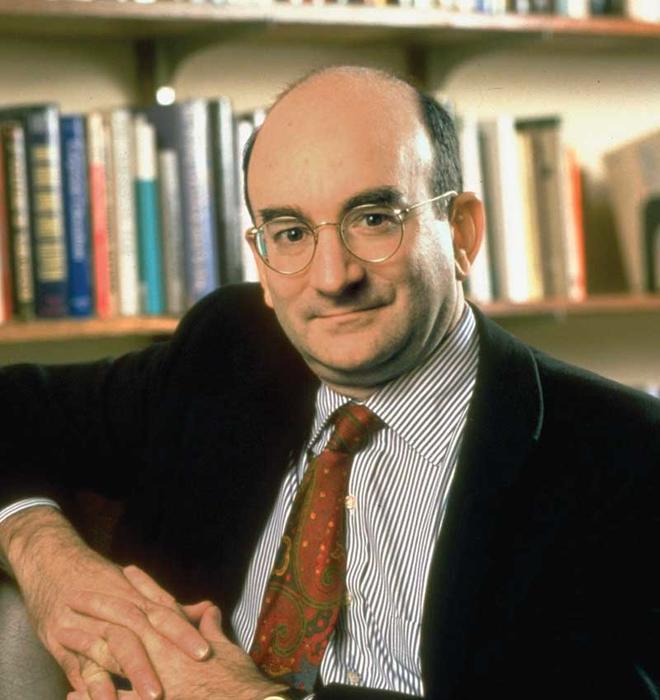
The Facebook groups popped up in 2006: “The Alan Brinkley Appreciation Society,” “Alan Brinkley Is Our Boyfriend,” “Our Hero … Alan Brinkley!” To scholars, Alan Brinkley ’71 was the historian’s historian who reshaped the field of American political history. To family, friends, and colleagues, he was a loving husband and father, and a person of uncommon grace and decency: “brilliant, insightful, generous, open-minded, loyal,” his colleague Eric Foner recalls. To generations of students, he made American history come to life.
Brinkley grew up in the suburbs of Washington, D.C., where his father, David Brinkley, co-anchored NBC’s evening newscast. David’s fame afforded Alan a front-row seat to the politics of the 1960s, but it also followed him to Princeton: When Alan’s parents dropped him off in 1967, students surrounded the family car chanting, “Goodnight, Chet,” his father’s sign-off line.
Alan Brinkley recalled the fall of 1967 as “the last semester of the F. Scott Fitzgerald Princeton.” By the time he graduated, historian Lizabeth Cohen ’73 remembers, Princeton was “a very different place — coeducational, more politically engaged, less elitist, and with the University’s FitzRandolph Gate now permanently unlocked and open to the outside world.” The experience of being a student in these tumultuous years, Brinkley said, became “a kind of prism” through which he viewed the world.
It was at Princeton that Brinkley discovered his love of historical research, writing a senior thesis under the direction of Nancy Weiss Malkiel on the Louisiana populist Huey Long. Even as an undergraduate, Malkiel says, Brinkley “had an uncanny feel for language — a sense of pace, style, composition, and felicitous phrasing,” a remarkable literary grace that would become his signature.
His Princeton thesis provided the starting point for his Harvard doctoral dissertation, which became his National Book Award-winning classic, Voices of Protest. A landmark history of New Deal liberalism, The End of Reform, followed, then a biography of Time-Life Inc. publisher Henry Luce that was a finalist for the Pulitzer Prize. Along the way he published two best-selling textbooks, two short biographies, and numerous essays and reviews.
Brinkley’s career carried him from MIT to Harvard, to the City University of New York, and finally to Columbia, where he served for six years as provost. “Being Alan’s student was like having a wise, humorous, and brilliant friend at your side always,” says Jerald Podair *97, whom Brinkley took on as an advisee. “Alan challenged you — no one had higher standards — but cared about you deeply. He took delight in your success.”
Brinkley’s undergraduate teaching was legendary. “He was probably my favorite professor during my four years at Harvard,” the comedian Conan O’Brien says, crediting Brinkley with instilling in him a lifelong desire to read “everything I could about American history” (evidenced, he claims, by his penchant for taking “giant hardcover tomes on Elihu Root” on beach vacations).
His textbooks allowed him to reach a wider audience. In addition to the Facebook groups, Brinkley boasted a collection (never worn) of T-shirts emblazoned with his image, printed and sent to him by high schoolers in whom he’d inspired a love of history.
Brinkley’s death from complications of frontotemporal dementia deprives us of one of our most penetrating and humane voices on American history. But, his daughter Elly Brinkley writes, “echoes of his voice will be heard for generations to come.”
Mason B. Williams ’06 teaches at Williams College. He is the co-editor, with David Greenberg and Moshik Temkin, of Alan Brinkley: A Life in History, which includes reminiscences by Elly Brinkley, Nancy Weiss Malkiel, Lizabeth Cohen ’73, and A. Scott Berg ’71.
JUNE 2, 1949 | JUNE 16, 2019







No responses yet